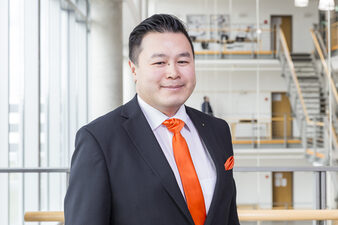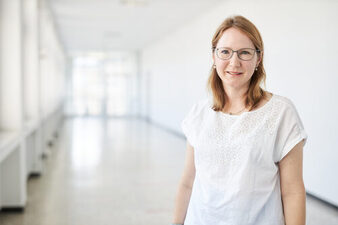About the project
The aim of the project is to use the Dortmund China Competence Center (DoCoChi) to bundle existing expertise and develop new expertise with a clear thematic focus, particularly for stakeholders in the Ruhr region and interested stakeholders at NRW and national level: University of Applied Sciences cooperation with China.
Fachhochschule Dortmund is structuring the topic into three relevant project fields at the various levels of the UAS model:
- Cooperation in practice-oriented Bachelor's education through the establishment of corresponding study programs (and universities) in China (Transnational Education TNB), exchange of lecturers and students and double degrees in close cooperation with companies. Specific projects are planned with the Shenzhen Polytechnic in Guangdong, the Chien Shiung Institute of Technology in Taicang / Jiangsu, the Beijing Technician College in Beijing, the Shunde Polytechnic in Guangdong, the Yangjiang Polytechnic in Guangdong, the Jinan Vocational College in Shandong, the Wuhan Shipbuilding College in Hubei, the Liuzhou Vocational College in Guangxi and the Nanjing Industry College in Jiangsu.
- Involvement of Chinese universities with an application-oriented profile in Fachhochschule Dortmund's Master's cooperation programs according to the Master School concept. This includes strategic university partnerships with exchange programs, joint study programs (e.g. summer schools, conferences) and double degrees.
- Joint application-oriented research and development (R&D, e.g. 2+2) with a clear focus on transfer to companies. Strategic cooperation between R&D networks and alliances in the Ruhr region and in China is sought.
Fachhochschule Dortmund addresses these topics with a three-stage China strategy:
Stage1: Establishing strategic partnerships and strengthening its own competencies in cooperation with China and in capacity building.
Stage2: Establishing a structured exchange of students, lecturers and staff in close cooperation with corporate partners.
Stage 3: Development of a China-related range of courses, e.g. in the form of special study programs, specializations or cooperative study formats.
The focus of the DoCoChi funding phase is stage 1:
- Establishment of an office to coordinate the measures with a person experienced in capacity building in China and a native Chinese-speaking person (with Chinese university experience).
- Establishment of a training program at Fachhochschule Dortmund within the framework of personnel development. The aim is to impart intercultural, linguistic and administrative competence in China.
- Development of an exchange program for employees, lecturers and prospective students with the Chinese partners.
- Establishment of a series of workshops in Germany (with the German partners) to develop strategies and measures (incl. external consulting services).
- Recruitment of China-related lecturers for courses preparing for the exchange. The aim is to create a pool of China-related lecturers.
- Implementation of a series of cooperation workshops in China.
Sponsor
Funding code
01DO18015
Funding program / Research program
Expansion of China expertise at German universities
Cooperation/project partners
- AHK Shanghai


